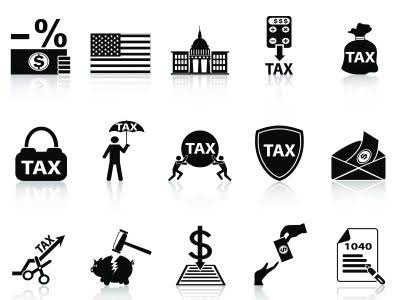Content

With a routine of revenue, expenses, liabilities, and receivables, bookkeeping keeps tabs on when your customer and vendor invoices are paid. You can ensure everyone is paid on time, avoid late fees, and increase the average amount of cash you have on hand with better planning and management. GrowthForce can serve as your outsourced advanced bookkeeping and accounting department. They require very different levels of effort and expertise and as you can imagine, the cost for full service accounting is much higher. However, most businesses that make the leap see the value and experience an ROI rapidly. If your business requires more advanced bookkeeping services, software like QuickBooks can be a viable solution.
- You can expect most bookkeepers to maintain the general ledger and accounts while the accountant is there to create and interpret more complex financial statements.
- If you put off bookkeeping too long, you end up with bounced checks, overdue invoices, or figures that don’t add up.
- Corporations, on the other hand, are separate tax entities and are taxed independently from owners.
- Grow confidently when you’re ready with our easy-to-add solutions.
- Our experts love this top pick, which features a 0% intro APR for 15 months, an insane cash back rate of up to 5%, and all somehow for no annual fee.
- Canadian store owners don’t need to charge GST/HST to customers who are outside of Canada.
Different countries have different pricing plans, so remember to check the website for the most updated information. When you are running a small business, it may be necessary to put price first when it comes to choosing accounting & bookkeeping software. Some of the most common questions we hear about online accounting software are about the topic of security. If you are going to store your accounting information in the cloud, you need to be confident that your data is safe.
Chart of Accounts
An audit trail means you’ll have your invoices in order and you can retrace your steps easily if there’s one tiny error. It’s packed with useful tips on how to get started, what to look for when choosing the right software and much more. Enter your loan information to get an estimated breakdown of how much you’ll pay over the lifetime of your loan.
What kind of bookkeeping is used by small businesses?
Single-entry accounting records all of your transactions once, either as an expense or an income. This method is straightforward and suitable for smaller businesses that don't have significant inventory or equipment involved in their finances.
This limited plan may be suitable for a micro-business with high-ticket transactions but only a few per month, such as a consulting or small service provider. The Advanced subscription adds many https://simple-accounting.org/becoming-a-certified-bookkeeper-step-by-step/ features including expense management, exclusive premium apps, a dedicated account team, and on-demand training. All plans allow integration with third-party apps such as Stripe or PayPal.
Are bookkeeping and accounting different?
For US store owners, the IRS doesn’t require you to keep receipts for expenses under $75, but it’s a good habit, nonetheless. Depending on the type of business transactions you’ll be making, different business credit cards have different perks. If you plan on spending a lot on travel, for example, a business credit card that offers miles may be ideal. Start by opening up What to Expect from Accounting or Bookkeeping Services a checking account, followed by any savings accounts that will help you organize cash flow funds and plan for taxes. For instance, you can set up a savings account and squirrel away a percentage of each payment as your self-employed tax withholding. A good rule of thumb is to put 25% of your income aside, though estimates for high earners might be closer to one-third.

Imagine trying to run your business without knowing how much you’re spending on expenses each month, or not knowing how much money your customers owe you. Imagine not accounting for those expenses properly and then trying to prepare your tax return the following year. Bookkeeping is the proper recording of all financial transactions for your business. Bookkeeping involves a lot of attention to detail; everything from properly identifying and coding invoices, purchase orders, and vendor bills, to ensuring that bills are paid promptly. There are many user-friendly accounting software options for small businesses, ranging from free to paid models.
Why QuickBooks
Every time you perform a financial transaction—for instance, make a sale, accept a client’s invoice, or pay a bill—you should record that transaction in your general ledger. Recording a financial transaction in your general ledger is referred to as making a journal entry. Scalability was the next most important consideration because as a company grows, its accounting needs grow as well, and transferring financial information to new software can be tedious. QuickBooks Online topped our list because of its scalability, training resources, and mobile app.

Do you have more questions about the bookkeeping process for small businesses? Wondering how best to collect and track financial information, deal with expense management, and ensure healthy cash flow for your business? Here are some of the most frequently asked questions on bookkeeping for small businesses. When hiring external team members, keep in mind that some of the responsibility still falls to you as the proprietor. Bookkeeping is how businesses, entrepreneurs, and decision-makers monitor a company’s overall financial health and activity.
What can I expect from your bookkeeping services?
If you have your bank accounts linked to your accounting software, reconciliation is a quick and easy process. Accrual accounting would record the expense upon receiving the bill. Again, very small businesses may be able to use cash accounting, but accrual accounting allows you to account for expenses in the proper month, rather than when they’re received or paid.
